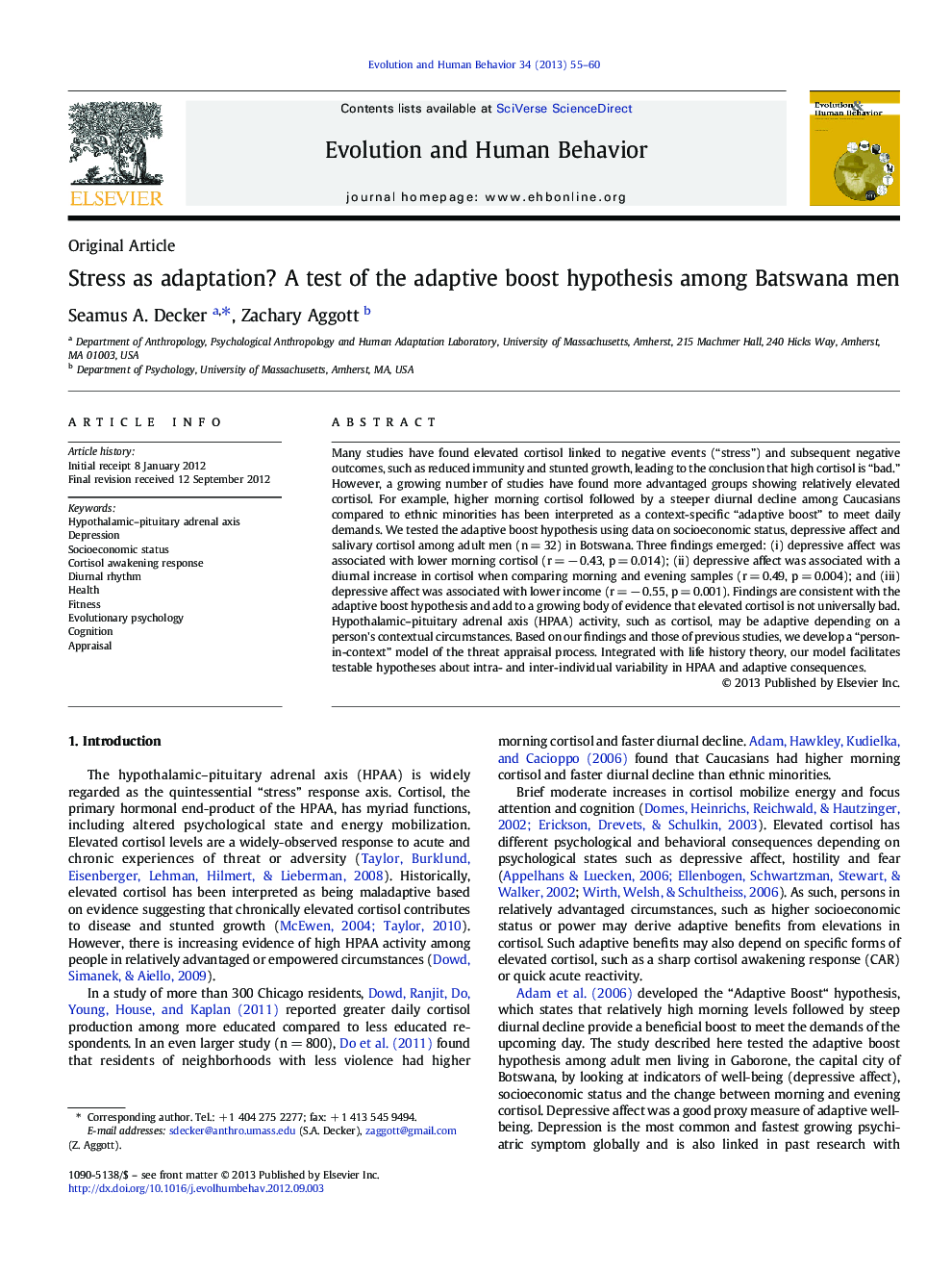| کد مقاله | کد نشریه | سال انتشار | مقاله انگلیسی | نسخه تمام متن |
|---|---|---|---|---|
| 943356 | 925461 | 2013 | 6 صفحه PDF | دانلود رایگان |

Many studies have found elevated cortisol linked to negative events (“stress”) and subsequent negative outcomes, such as reduced immunity and stunted growth, leading to the conclusion that high cortisol is “bad.” However, a growing number of studies have found more advantaged groups showing relatively elevated cortisol. For example, higher morning cortisol followed by a steeper diurnal decline among Caucasians compared to ethnic minorities has been interpreted as a context-specific “adaptive boost” to meet daily demands. We tested the adaptive boost hypothesis using data on socioeconomic status, depressive affect and salivary cortisol among adult men (n = 32) in Botswana. Three findings emerged: (i) depressive affect was associated with lower morning cortisol (r = − 0.43, p = 0.014); (ii) depressive affect was associated with a diurnal increase in cortisol when comparing morning and evening samples (r = 0.49, p = 0.004); and (iii) depressive affect was associated with lower income (r = − 0.55, p = 0.001). Findings are consistent with the adaptive boost hypothesis and add to a growing body of evidence that elevated cortisol is not universally bad. Hypothalamic–pituitary adrenal axis (HPAA) activity, such as cortisol, may be adaptive depending on a person's contextual circumstances. Based on our findings and those of previous studies, we develop a “person-in-context” model of the threat appraisal process. Integrated with life history theory, our model facilitates testable hypotheses about intra- and inter-individual variability in HPAA and adaptive consequences.
Journal: Evolution and Human Behavior - Volume 34, Issue 1, January 2013, Pages 55–60